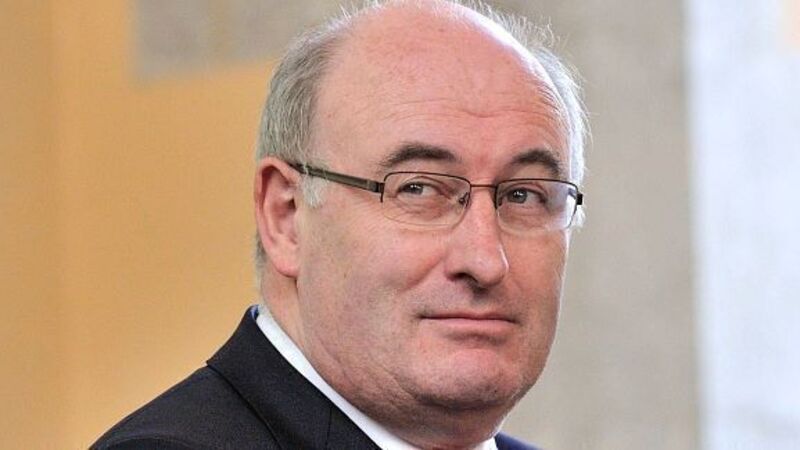‘Big Phil’ Hogan back on top after very rocky years in Cabinet

His reputation as a slick fixer and deal-cutter was severely dented by clumsy handling of the property tax and water charge issue, but, as befits a keen member of the Kilkenny Archaeological Society, Mr Hogan knows where all the political bodies are buried in Fine Gael and was always going to get the plum European Commissionership’s one-way ticket out of an increasingly unpopular government.
Turning that into the golden ticket of the Agriculture portfolio with its influence over €60bn worth of spending is an added bonus and shows that ‘Big Phil’ could be back on top in Brussels after three and a half very rocky years in Cabinet. Well, that is if he survives scrutiny from the European Parliament’s agriculture committee, but then Mr Hogan has always been something of a survivor.













